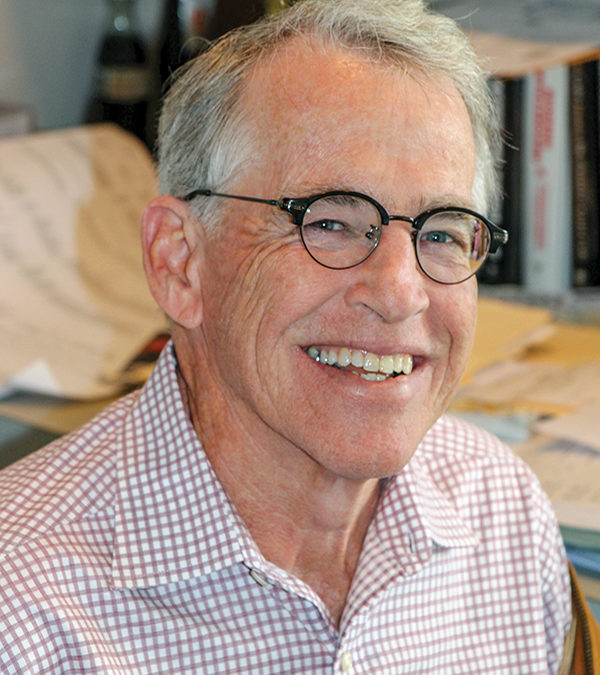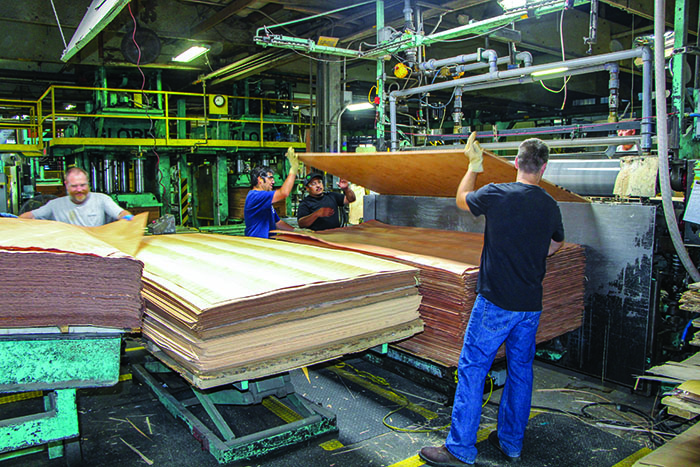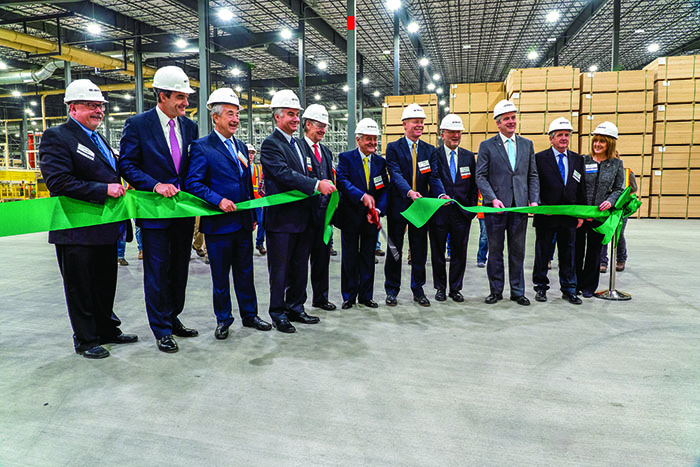Dieffenbacher To Supply Unilin Recycling Plant In October 2024, Unilin and Dieffenbacher announced an agreement to introduce and further...
Certification Comes Under Fire
Certification Comes Under Fire
Nine U.S. domestic plywood producers, calling themselves the U.S. Structural Plywood Integrity Coalition, have filed a Lanham Act claim of false advertising against three U.S. certification bodies: PFS-TECO, Timber Products Inspection and International Accreditation Service. The essential point of the claim is that structural plywood panels produced in Southern Brazil are being fraudulently stamped as compliant with U.S. Product Standard PS1-09 for structural plywood, when the panels in fact do not meet minimum structural requirements for stiffness and deflection, according to the coalition’s claim.
The complaint, which was filed with the United States District Court for the Southern District of Florida (Fort Lauderdale Division), seeks preliminary and permanent injunctions requiring PFS-TEC and TPI to immediately revoke the certifications of certain Brazil plywood producers to manufacture PS 1-09 structural plywood, and $300 million in damages from PFS-TECO, TPI and IAS, plus any additional amounts proven at a trial by jury.
“The product standards for American plywood have serious real-world implications for all homes constructed using wood panel products,” explains Tyler Freres, VP of Sales with Freres Lumber. “Inferior products can endanger the health and safety of everyone who depends upon their homes to provide shelter and security for their families and loved ones. It is incumbent upon engineered wood products manufacturers to ensure that we meet all codes and that U.S. certification agencies have consumers’ health and safety as their primary concern when providing their certifications.”
The nine companies include: Freres Lumber, Coastal Plywood, Scotch Plywood, Veneer Products Acquisitions (Southern Veneer Products), Hunt Forest Products, Hardel Mutual Plywood, Murphy Co., SDS Lumber and Swanson Group.
They claim that 30 companies operating 35 plywood plants in two states in Southern Brazil (Paraná and Santa Catarina) are falsely stamping millions of square feet of structural plywood imported into the U.S. as meeting the U.S. Voluntary Product Standard PS 1-09 for structural plywood. They say that tests by the American Plywood Assn. in 2018 commissioned by the coalition show that the Brazilian plywood panels produced in Southern Brazil experience massive failure rates with respect to the stringent strength properties of the PS 1-09 standard, specifically bending stiffness and deflection.
They also claim that the testing demonstrates the PS 1-09 quality plywood cannot be consistently produced from the two fast-growing non-native plantation species, loblolly pine and slash pine, used by the Brazilian plywood producers.
“As the certifiers of all 35 Brazilian plywood plants exporting PS 1-09 stamped plywood panels to the U.S., defendants PFS-TECO and TPI provide the gateway into the United States for these falsely advertised panels,” the complaint states. “The only explanation for the pervasiveness of the false advertising and the number of years over which it has persisted, is the intentional or negligent failure of PFS-TECO and TPI to rigorously perform their certification obligations…” The complaint also says that International Accreditation Services, as the accreditor of PSF-TECO and TPI, “has been grossly negligent in failing to perform its accreditation function.”
The complaint says that consequently millions of square feet of “falsely advertised off-grade Brazilian plywood” has moved into the U.S. and is being incorporated into residential and commercial buildings. “U.S. residents who live or work in (these buildings) are exposed to significant risk of serious injury or death, particularly in the event of a hurricane or significant earthquake.”
In a September statement PFS-TECO says it intends to vigorously defend its reputation, says the coalition’s testing approach is not permitted to be used under PS 1-09 as an alternative to conducting the uniform load test, and notes that PSF-TECO has more than 15 years of data showing that plywood from Southern Brazil and produced by those manufacturing facilities certified by PFS-TECO can meet PS 1 requirements.
Timber Products Inspection says the allegations in the lawsuit are absolutely false. “Despite the claims of the plaintiffs, our experience and testing indicate that Brazilian plywood meets all objective industry and regulatory standards outlined by the PS 1-09 standard. Clients in Brazil and elsewhere who do not consistently meet the applicable industry standard do not remain as TP clients. In 50 years of service, TP has never been accused of such negligence and we stand by our team, our clients and our processes. We intend to vigorously defend our reputation in court—and as necessary, in public—in the months ahead.”
RELATED ARTICLES
SOMETHING MUST BE MISSING FROM THIS DISCUSSION
Latest News
Dieffenbacher To Supply Unilin Recycling Plant
Buddy Douglas Retires From Scotch Plywood
Buddy Douglas Retires From Scotch Plywood After 40 remarkable years in the timber industry, Buddy Douglas has officially retired as Plant Manager of...
Roseburg Personnel Changes At Dillard Lumber, Medford MDF, Riddle Plywood
Roseburg Personnel Changes At Dillard Lumber, Medford MDF, Riddle PlywoodRoseburg Forest Products has made key personnel decisions at three of its...
Find Us On Social
Newsletter
The monthly Panel World Industry Newsletter reaches over 3,000 who represent primary panel production operations.
Subscribe/Renew
Panel World is delivered six times per year to North American and international professionals, who represent primary panel production operations. Subscriptions are FREE to qualified individuals.
Advertise
Complete the online form so we can direct you to the appropriate Sales Representative. Contact us today!


 Article by Rich Donnell, Editor-in-Chief, Panel World November 2019
Article by Rich Donnell, Editor-in-Chief, Panel World November 2019
